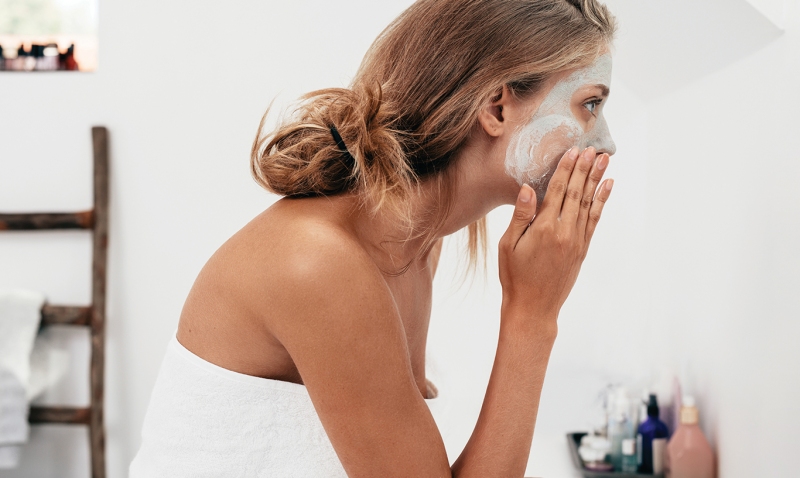Summer Skincare Tips

Austin is a great place for spending time outdoors in the summertime sunshine. However, while catching some rays, it’s important to know how to take care of your skin.
“The heat in Austin can trigger any skin conditions that you may have,” Stephanie Molina, senior medical esthetician at Rejuvenate Austin says. “This includes rosacea, hyper-pigmentation and acne. Heat can flare them up during this time. Summer weather is definitely a lot more harsh on your skin.”
According to the American Cancer Society, there are an estimated 4,530 new cases in 2020 of melanoma on the skin in Texas. While being active amidst a busy schedule, it can be easy to forget a daily skincare regimen.
“Keeping your skin healthy, especially in the summertime, is perfect prevention,” Dr. Saya Obayan, a board-certified dermatologist and practice owner of Skin Joy Dermatology says. “The first thing you need to do is try to prevent all that sun damage in the first place.”
Less is more when it comes to a daily skincare routine in the summer, suggests Dr. Kellie Reed, a board-certified dermatologist at Westlake Dermatology. She recommends applying an SPF 30+, broad-spectrum UVA/UVB sunscreen, in addition to using a vitamin C topical, a lip SPF and a salicylic acid-based cleanser if you develop more acne. Also, moisturize your body often as skin becomes drier due to the heat and swimming in chlorinated or salt water pools.
Reed says her top summer products are ISDIN Photo Eryfotona Ageless, Colorescience Sunforgettable Total Protection Brush-On Shield SPF 50, Baby Bum Mineral Sunscreen, SkinCeuticals C E Ferulic and EltaMD UV Sport Broad-Spectrum SPF 50 Pump.
“Some people don’t change their skincare regimen at all, and you don’t have to make a lot of changes,” Reed says. “The biggest thing is that you’ll likely want to transition from your heavier duty cream you may use in the winter or fall to a lotion. Choose things that are oil-free or non-comedogenic to help minimize breakouts.”
During the summer, Molina says you should exfoliate because constant reapplication of sunscreen can cause buildup. Avoid using a harsh or thick scrub which can hurt your skin.
“The bigger the scrub or the bigger the exfoliant, whether it’s salt, walnut or apricot, can definitely damage and make tiny micro-tears in your skin,” Molina says.
Tanning is not recommended during the summer either; tan skin means there is irreversible, damaged DNA that can cause skin cancer. Dr. Obayan advises to not use tanning oils as they increase your tendency to sunburn.
“In the summertime, it’s really important to make sure that you’re not turning red at all and certainly not turning tan,” Obayan says.
All complexions can get skin cancer, so everyone needs to have sun protection. Sunscreen should be applied every day, whether it is cloudy or sunny.
Reapplying sunscreen at least every two hours is also essential. According to the Centers for Disease Control and Prevention, within 15 minutes the sun’s ultraviolet rays can damage your skin.
Austin has many summertime water activities such as paddleboarding, swimming, boating and kayaking, but being out on the water makes you more likely to burn.
“You want to make sure that you’re reapplying because you will get exposure from the sun, but then you’ll also get exposure from when it reflects off the water,” Obayan says.
For further sun protection, Obayan and Reed suggest wearing wide-brimmed hats or clothing items like rash guards with built-in UV protection.
After getting sweaty out in the heat, Reed suggests changing your workout clothes quickly to avoid inflamed hair follicles. She also says blotting your sweat rather than wiping it, then shower using a gentle wash.
“Warmer weather plus active Austinites leads to sweat mixed with bacteria and oils on their skin,” Reed says. “This can lead to more frequent acne flares.”
Hydration is also key for taking care of your skin during the summer, especially if you do experience sunburn. If your skin does burn, Reed suggests taking a cool shower and applying a soy-based moisturizer and aloe vera.
“One of the things that summer weather can do is it can absolutely dehydrate your skin,” Obayan says. “In order to make sure that you’re not dehydrated, you should drink plenty of water. I normally recommend a couple liters a day, and you should take in a lot of fresh fruit.”
Not taking care of your skin during the summer can have lasting consequences such as sunspots, wrinkles, freckles, skin cancer and melasma on your body. Make sure you are protecting it as best as possible.
“The best thing you can do is protect your skin now — and that really starts in childhood,” Reed says. “The more diligent you are when you’re young, the better off you are when you’re older.”






